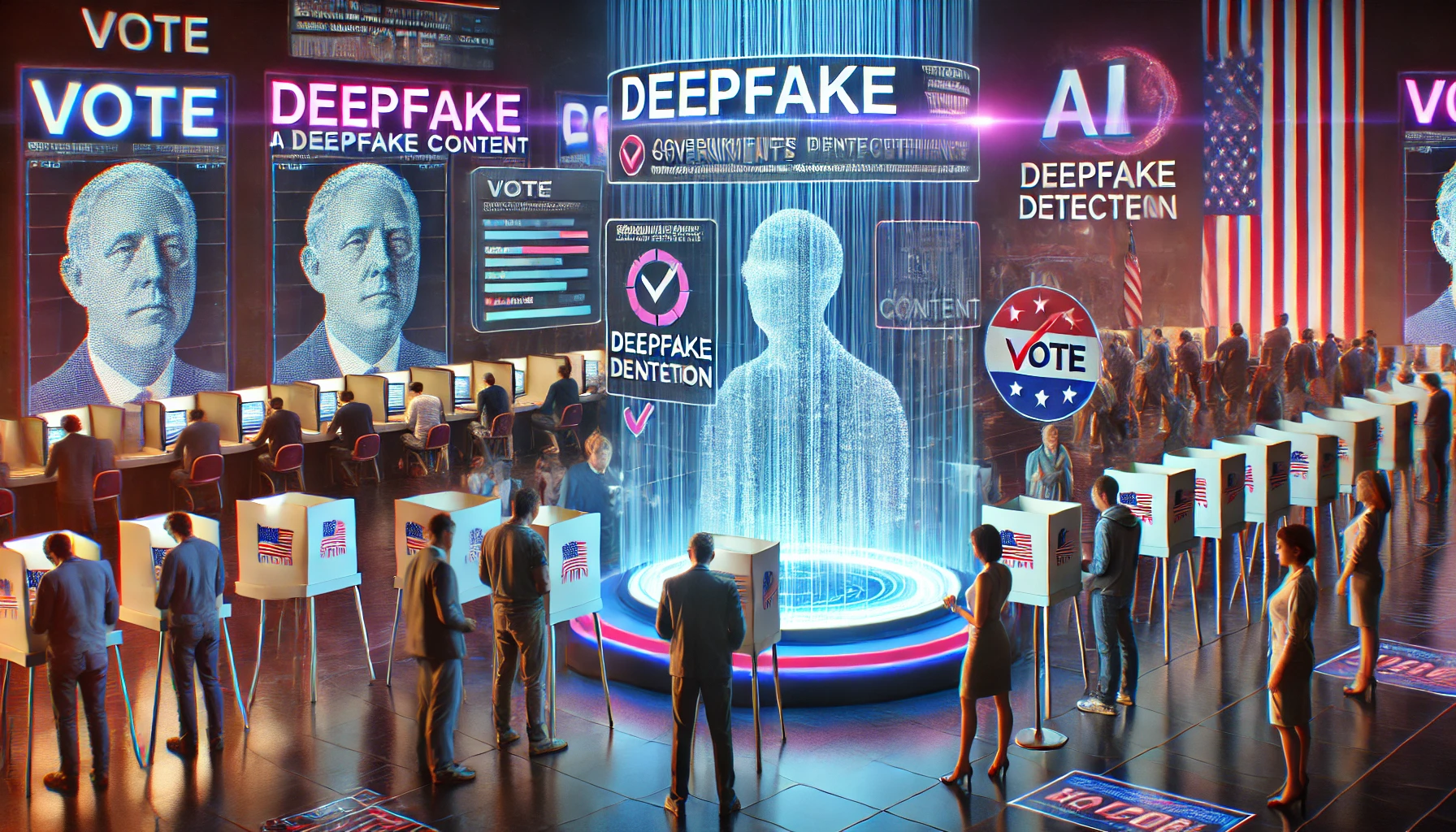As artificial intelligence (AI) continues to transform various aspects of society, its influence on elections has become a focal point of concern in 2024. Governments worldwide are grappling with the potential misuse of AI, particularly in the context of election manipulation. One of the most significant challenges is the rise of deepfake technology, which has the potential to deceive voters and disrupt democratic processes.
The Rise of AI in Political Campaigns
AI has been increasingly integrated into election campaigns over the years, enhancing everything from voter outreach to data analytics. Political parties use AI to analyze vast amounts of data, target specific voter groups, and even optimize messaging in real-time. While these tools have increased the efficiency of campaigns, they have also raised ethical questions about the transparency of AI-driven strategies.
However, the more insidious side of AI is its potential to distort reality through the use of deepfakes and other forms of disinformation. Deepfake technology allows for the creation of highly realistic but entirely fabricated videos or audio recordings, making it easy to spread false information about political candidates or issues.
The Threat of Deepfakes in Elections
Deepfake technology has advanced rapidly, making it increasingly difficult to distinguish real videos from manipulated ones. In an election context, this poses a serious threat. A deepfake video of a candidate making inflammatory statements or appearing in a compromising situation could go viral, influencing voter opinions before the truth is uncovered. The time it takes to debunk a deepfake can be critical, as false narratives spread quickly on social media platforms.
In the 2024 election cycle, governments are taking this threat seriously. Regulatory bodies and lawmakers are working to address the potential impact of deepfakes on election integrity. The challenge lies in striking a balance between regulating harmful AI content and preserving free speech.
Global Government Responses
Governments worldwide have begun implementing measures to combat the misuse of AI in elections. For example, the European Union has introduced strict regulations aimed at curbing the spread of disinformation, including deepfake content. Under the EU’s Digital Services Act, platforms are required to remove illegal content swiftly, and penalties are imposed for failing to do so.
In the United States, regulatory efforts are also ramping up. The Federal Election Commission (FEC) and other governmental agencies are working to develop guidelines that address the use of AI in election campaigns. Legislation is being proposed to impose penalties for the creation and distribution of deepfakes designed to deceive voters. Additionally, major tech companies like Facebook and Twitter are partnering with governments to implement AI-based tools that detect and flag potential deepfake content before it spreads widely.
China, too, is implementing new regulations, requiring platforms to watermark AI-generated content to clearly distinguish it from authentic media. This is part of a broader effort to prevent the use of AI in spreading misinformation during elections and to enhance transparency in media.
AI and the Future of Voter Manipulation
While AI can be a powerful tool for legitimate purposes, its potential for misuse in election campaigns is undeniable. In addition to deepfakes, AI can be used to create convincing text-based disinformation, manipulate social media algorithms to favor specific candidates or narratives, and even automate the creation of fake social media accounts to amplify misinformation.
In the 2020 U.S. presidential election, AI-driven disinformation campaigns were already a significant concern. In 2024, with the technology becoming even more advanced, governments are under pressure to stay ahead of these challenges. The role of AI in elections raises broader questions about democracy, transparency, and the role of technology in shaping public opinion.
The Role of Media and Tech Companies
As AI continues to evolve, media outlets and tech companies are on the front lines of combating its misuse in elections. Social media platforms, in particular, have been criticized for their role in spreading disinformation. In response, companies like Google, Facebook, and Twitter are investing heavily in AI-based systems that can detect and remove deepfakes and other forms of manipulated content before they have a chance to influence voters.
AI detection tools are being developed to identify inconsistencies in video and audio recordings that are indicative of manipulation. These tools, while still in development, are expected to play a critical role in maintaining the integrity of election-related content on major platforms. Furthermore, media outlets are increasingly adopting AI-based fact-checking tools to verify the authenticity of statements and content circulating online.
AI’s role in elections is a double-edged sword. While it offers significant benefits in campaign efficiency and voter engagement, it also presents new threats to the integrity of democratic processes. The misuse of AI, particularly in the form of deepfakes, is a pressing issue that governments, tech companies, and regulators must address to protect the fairness of elections.
As we move through the 2024 election cycle, the focus on AI regulation will likely intensify, with governments working to create legal frameworks that safeguard the democratic process while encouraging innovation. By prioritizing the detection and prevention of AI-driven disinformation, we can ensure that the future of elections remains secure in an increasingly digital world.
Sources:
- Foley & Lardner LLP | Official Website
- European Union Digital Services Act
The fight against AI misuse in elections has just begun, and as technology continues to advance, so must our efforts to ensure it is used responsibly.




